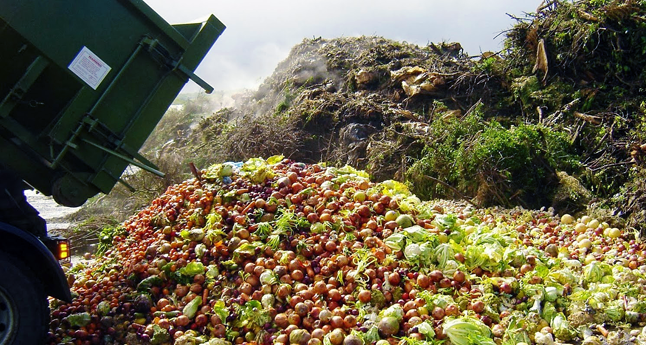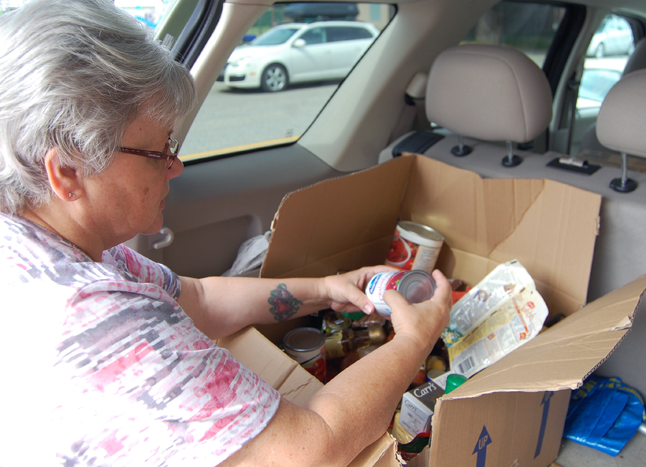
By David F. Rooney
Here’s a question that deserves serious discussion in our community: Should we actually be throwing out some foods?
Waste not want not is an admirable lesson famlies teach their children and is often reflected in their reluctance to waste food at home. But this is also a question that relates to the enormous amounts of food that are tossed out by supermarkets and bakeries. Some jurisdictions are taking a hard look at this issue. In May, the French parliament made it illegal for grocery stores to throw out food.
Under a new law, French supermarkets must prevent food waste and must now donate unsold but edible food to charity, or for use as animal feed or compost.
They will also be able to donate products for energy and fuel purposes, France Info radio reports.
Socialist MP Guillaume Garot, who sponsored the bill, said “it’s scandalous to see bleach being poured into supermarket dustbins along with edible foods.”
Under the new law, all large-sized supermarkets will have to sign contracts with a charity group to facilitate food donations.
What would it take to enact a law like this in British Columbia or elsewhere in Canada?
I started wondering about this during a discussion last week with Patti Larson Community Connections Outreach Manager who oversees the Food Bank.
Patti, of course, is vitally interested in this question and shortly after we parted sent me a link to a Global News story about the Canadian angle.
“Waste occurs at various points of the food-supply system,” Global’s Allison Vuchnich reported on June 25. “There are lots of gaps, according to experts, but the biggest source of waste are households.
“‘Statistically we waste 31 million pounds of food a year,’ she quoted Debra Lawson, executive director of Second Harvest, as saying, ‘and that is mainly 50 per cent household waste, what you and I would buy, not eat, and throw out. That is an incredible amount of food.’”
Some major food corporations, such as Nestlé, say they are actively reducing waste in their operations.
“In a world facing increasing constraints on natural resources, our long-term goal is simple but ambitious: zero waste for disposal,” the company said recently. “We’re making progress against a number of interim targets by preventing and minimising the waste we generate in the first place, by avoiding food wastage and improving resource efficiency along the value chain. We also look to reuse materials and create value from them – through energy recovery or creating new uses for by-products – where feasible.”
Like Ms. Lawson, Patti Larson really hates to throw out food but sometimes she must. After welcoming several recent donations she felt compelled to remind all donors that the Food Bank cannot accept or distribute foods that are past their best-by dates — in some instances by several years — or that have been opened and partially used.
“We have to take it out to the landfill,” she said somewhat ruefully. That costs the frugal and cost-conscious Food Bank money it can ill afford so Patti asks that donors take a closer look at what they’re planning to give.
“I want to say this as nicely as I know how,” she said, “because we appreciate people’s generosity but if it’s out of date or has already been opened please just throw it out yourselves. People really deserve good quality food.”
This led to our chat about banning the destruction of fresh or nearly fresh foods.
Food is, as most Revelstokians know, an important subject of public discussion and community activity. Not only are there significant community gardens in town, with the newest being formally opened during an outdoor ceremony and party at the Visual Arts Centre on Saturday, July 25, but there are organized food-specific groups such as the Local Food Initiative Society and the North Columbia Environmental Society, which has long sponsored the Community Gardens built in Revelstoke.
On another note, if you know where the Community Connections Food Bank can acquire 500 square feet of potential secure storage space then Patti Larson would really like to hear from you.
She said the Food Bank is facing a couple of significant issues, one of them being its need for storage space. It had stored food at Peter Humphreys’ business complex in the Big Eddy but that space is no longer available.
“We need a unit that can accommodate 14 pallets of food,” Patti said in an interview last week. “That’s about 500 square feet.”
The need for a storage space is becoming increasingly important as the summer progresses because the Food Bank’s major autumn food drive is coming up in mid-September and a storage space absolutely must be located by then.
If you know where the Food Bank can locate some suitable storage space please call Patti at Community Connections 250-837-2920.



